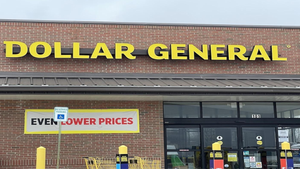Podcasts from Supermarket News covering issues that matter most to food retailers.
Podcast: Are grocery retailers living up to shoppers’ COVID-19 safety expectations?Podcast: Are grocery retailers living up to shoppers’ COVID-19 safety expectations?
Nick Mercurio of Ipsos sheds light on how chains can earn customers’ trust
Listen to this podcast on Spotify, Apple Podcasts and Soundcloud.
The past few months have seen supermarkets and other grocery retailers implement multi-pronged strategies to protect customers and employees from COVID-19. But what do shoppers think of retailers’ efforts, and how well are stores adhering to these safety steps?
Global market research firm Ipsos aims to help answer those questions with the Consumer Health & Safety Index, a new benchmarking tool to evaluate how retailers across seven sectors — including grocery — are operating during the coronavirus pandemic. The study includes a poll of 2,000 U.S. shoppers to find out which COVID-19 safety practices they deem most important, followed by “mystery” shopping trips at thousands of stores across 45 major U.S. brands to gauge compliance with health and safety measures.
Nick Mercurio, executive vice president and service line head of U.S. channel performance at Ipsos, told Supermarket News in a podcast that grocery rated highest among retail sectors in coronavirus health and safety. Whole Foods Market, Costco Wholesale and Trader Joe’s were the top overall retail performers.
“These three brands clearly outperformed among the 45 brands across the seven industries by a significant margin. In fact, grocery was the highest-performing industry in total, when you look at the composite scores for the index and also the individual behaviors,” Mercurio explained. “Across all of the brands, grocery represented three of the top five and seven of the top 10 [performers]. Brands that sell food — including clubs and big-box stores — were among the top 10 performers, really head and shoulders above the other industries.”
Also rated highly were Walmart, Aldi, Publix, Sam’s Club, Safeway, Target and Albertsons. Other grocery retailers examined included Giant Eagle, Stop & Shop, BJ’s Wholesale Club and dollar stores, all of which also performed well.
“Across the board, there was consistency and high performance from grocery retailers,” Mercurio said.
Still, among all the retail sectors studied by Ipsos, there’s room for improvement in COVID-19 health and safety, particularly when individual store locations and different geographies are taken into account, he noted. For example, the “mystery shops” uncovered shortfalls in employees wearing face coverings and/or gloves, availability of hand sanitizer or handwashing solutions, plexiglass shields at checkout lanes, staff actively cleaning areas of the store, and shopper capacity limits in stores.
Why does this matter? Ipsos found that 61% of consumers are still delaying returning to brick-and-mortar stores on a regular basis for fear of catching the virus.
“In the research we conducted, 62% of shoppers said they would stop shopping at a retailer if they were not taking health and safety seriously. So there’s a really high potential defection rate and very little margin for error if you don’t get it right,” Mercurio said. “But if you do, there’s definitely a chance to not only grow your market share, but also your share of wallet and profitability.”
Supermarket News · Podcast: Are grocery retailers living up to shoppers’ COVID-19 safety expectations?
About the Author
You May Also Like






